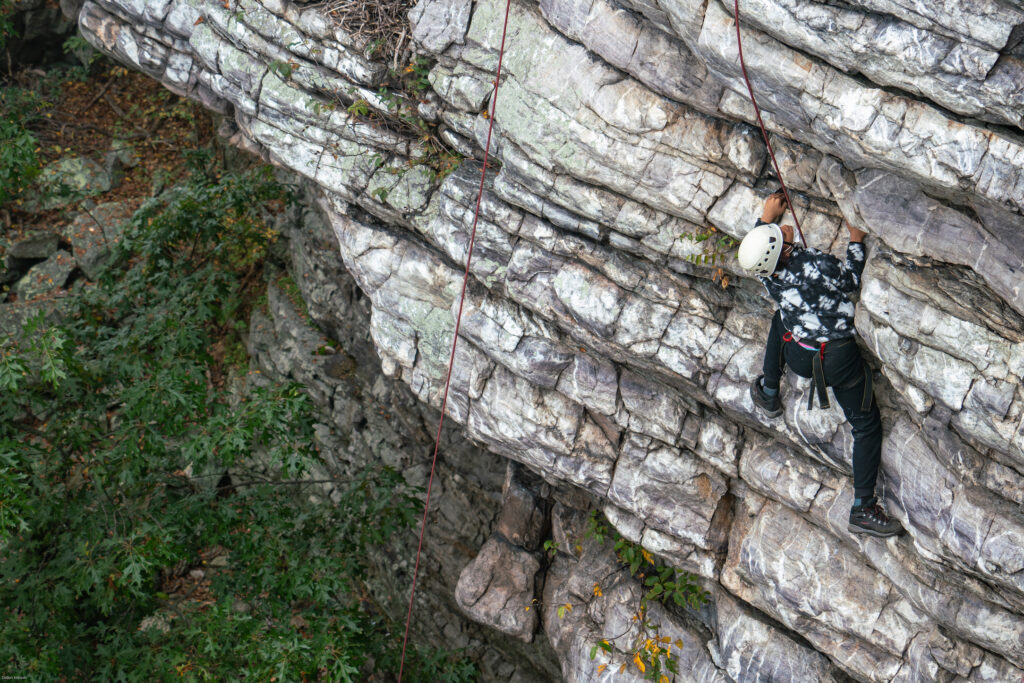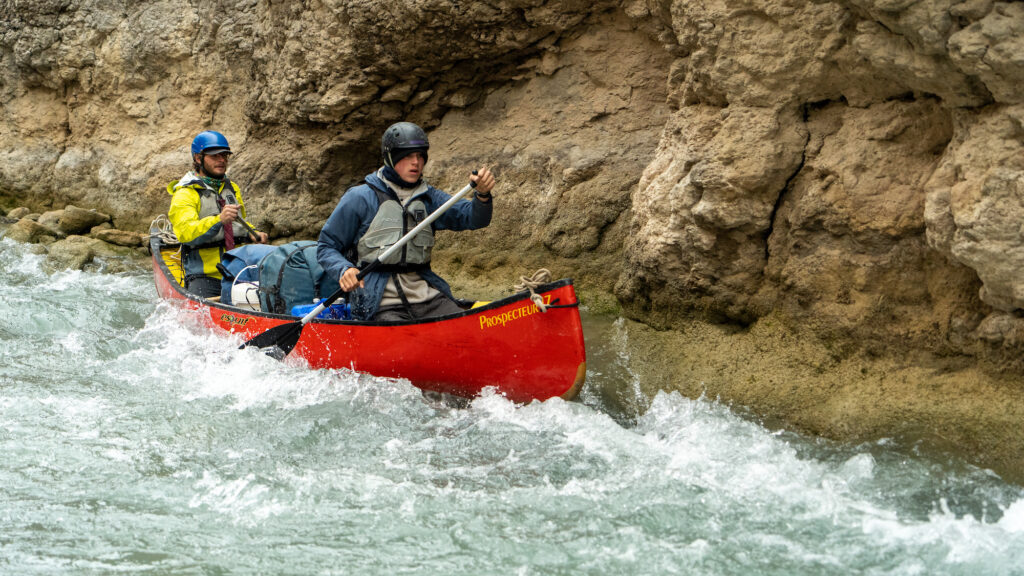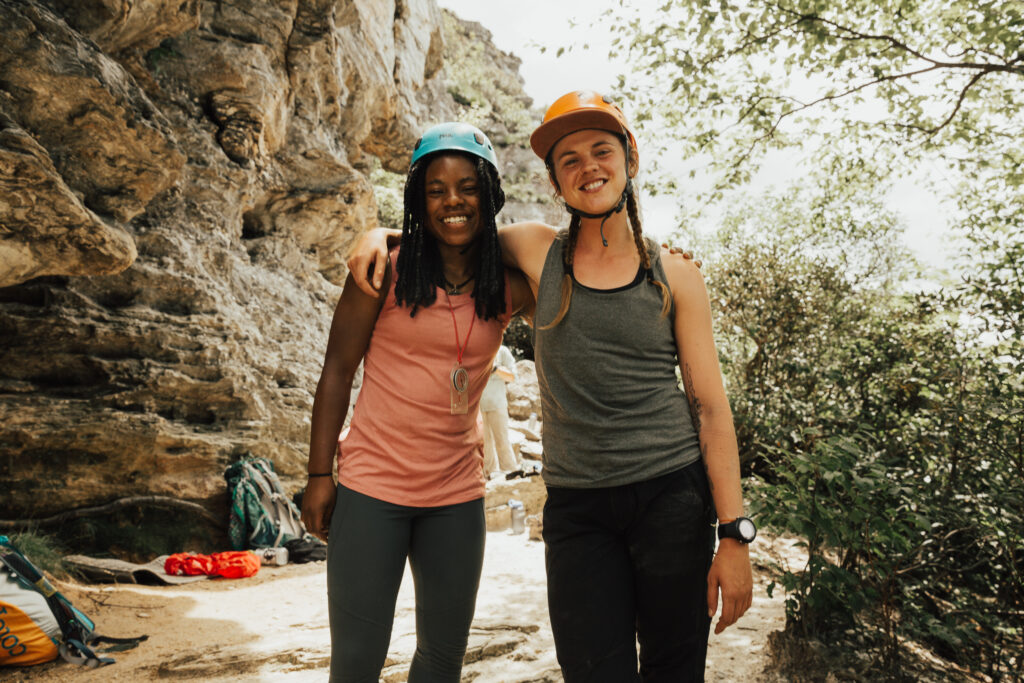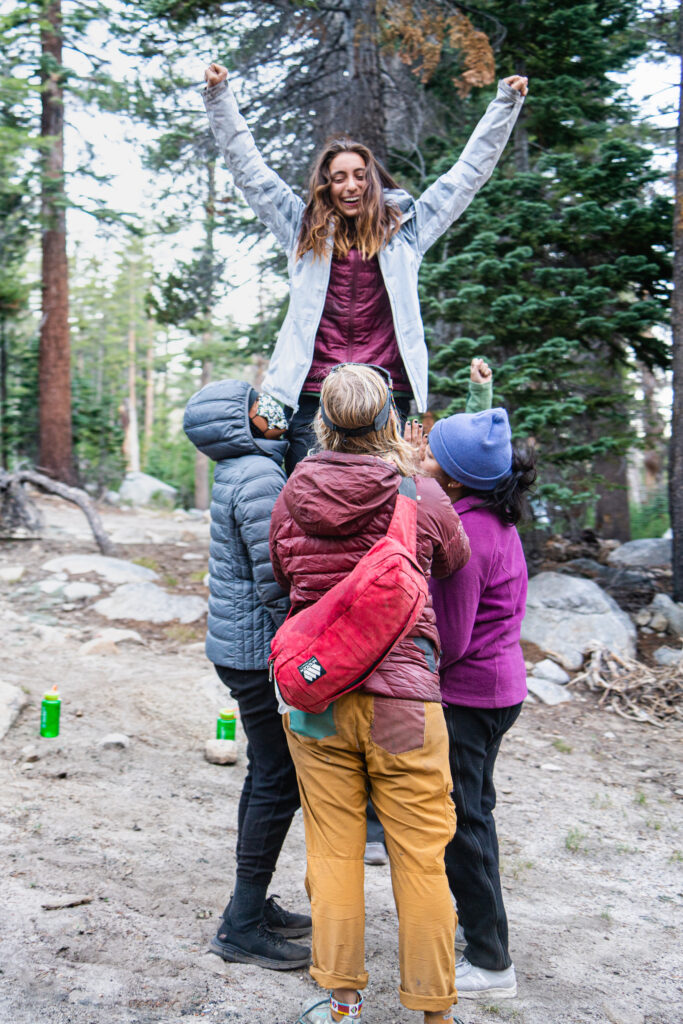Accountability is key to setting goals. Being accountable to yourself, a partner and a mentor will help your goals feel achievable.
We often consider goal setting as something of an individual task—we make a personal goal, and if we don’t make it, it’s either because we believe an external circumstance got in the way or because we lacked the motivation or talent to complete it. On Outward Bound expeditions, the people you’re with and the relationships you create together shape almost everything a crew does. When we set goals within the microcosm of an outdoor expedition, it becomes clear how our ability to meet goals is formed not just by individual characteristics or external circumstances but rather by how we ask for support and support others in return.
Accountability is key to setting goals. Most simply, accountability is the willingness to be seen as you set your goal and as you go about trying to achieve it. Being seen in moments of success and struggle makes our goal feel real. Below are three ways Outward Bound students practice accountability in setting and reaching goals, and the ways you can practice them back home.
Be Accountable to Yourself: Say Your Goal Out Loud
At the base of a rock climb, after checking safety gear of helmets and harnesses and after tying into the belay rope, an aspiring climber often takes a moment to examine the route before climbing. Their belay partner, who will stay on the ground and take in the rope slack, can ask the climber about their goal. This time is a chance for the climber to say their goal out loud for themselves, for their belay partner, or perhaps, for their other crew members. A great follow-up question that a belay partner can use is: How do you want to be encouraged in your goal? Some people love a cheering crowd, some prefer focused tips from one person and some prefer no comments from the peanut gallery on the ground.

Photo by Dalton Johnson
Often, saying the goal out loud before climbing allows the climber to be accountable, most of all to themselves. Sometimes a climber will get to a tricky section that requires a big move, and after a few tries, will ask to be lowered down. The belayer then will subtly ask, are you sure? Having the climber’s goal in mind can be enough to prompt another try. Other times, even getting to the big move might already be a point surpassing the climber’s goal, in which case the decision to come down can turn more easily into a celebration.
How to Put Personal Accountability to Practice
Even if you’re not at a rock wall as you’re reading this, examine how high you want to climb and what route you’ll tackle to get there—take a moment and try saying a goal out loud. What is the goal? How will you get there? How do you want to be supported? Say it all out loud!
Have an Accountability Buddy
An accountability buddy is someone who has a parallel goal to yours, and who you can mutually support. When a crew is running whitewater rapids in canoes, the crew will stop to ‘scout’ particularly challenging rapids. When a crew decides to paddle a rapid, two partners paddling a canoe together will talk through their plan from a vantage point on the shore where the flow of the water can be seen with greater perspective. The route line that they trace through the rapid becomes a goal that they share. The paddler in each position has a unique role in propelling the canoe, so although both paddlers are aiming for the same course, the skills that they are practicing may be different.

Photo by Mac Gaither
Once through the rapid, the canoe partners will pull into an eddy, a swirl of water along the shore, and talk through how it went. This time usually involves cheering high fives or solemnly scooping sloshing water out of the boat, or sometimes both. Partners accountable to each other take ownership for what they did to achieve the desired line or what they may have done to set the boat off-course. They are open and willing to receive feedback from their paddling partner while valuing the perspective that their partner can offer.
Defining a Good Accountability Partner
Accountability buddies can be great in a variety of settings. Perhaps it’s a partner on a run or a friend who joins you over a video call for regular journaling sessions. Accountability buddies can also be the people you follow up with after taking steps towards your goal, like sending a text message/audio/photo to celebrate training or practicing a skill you’re advancing. It’s often helpful to be as specific as possible with your accountability buddy—What is your goal? When do you want to accomplish it? What will you do to get there? How will you know when you’re there? And importantly, how exactly do you want their support?
Find Your Mentors
Outward Bound Instructors wear many hats—fire-builders, navigators, camp-setter-uppers, cooks-in-the-rain, etc. By the end of an Outward Bound expedition, students embody the core skills that their Instructors have modeled, both relating to wilderness travel as well as communication, teamwork and leadership. At the start, middle and end of an expedition, students meet with an Instructor to share goals that they have for the course and to reflect on how they are progressing towards them. As the course unfolds, goals may change, and students may come to see more connections between learning on course and life at home.

Student and Instructor on a Girl’s Backpacking expedition. Photo by Rachel Veale.
Identifying the Right Mentor
A mentor is different from an accountability buddy. In that, they offer a level of experience and perspective. This can be deeply valuable in setting a goal in the first place. When we check in with someone we trust, who has experience that we value, they can help us clarify steps to achieving a goal that we may not have seen at first—helping make our goal-setting more realistic. A mentor may have held a similar goal in the past and can share wisdom about setbacks and how they overcame them. Or perhaps, they can’t relate precisely to the goal but are connected to a network of resources to share.
Outside of an Outward Bound expedition, mentors come in many forms—it might be an older family member, a teacher, a community leader, a coach, etc. In some of these relationships, the dynamic of mentorship is structured and obvious. At other times, it’s a great idea to make it explicit. For example, consider asking: I really look up to your experience. Could you mentor me in achieving this goal that I have?

Photo by Dalton Johnson
Assemble the Crew
As we set goals for the year to come, we can begin to think of our goals in relation to a network of people who will help us set and keep them—our accountability buddies, our mentors and the folks on the ground who cheer or support us in plenty of different ways.
About the Author
Nora Spicer has instructed backpacking and canoeing courses at the Hurricane Island Outward Bound School since 2014. She has an MA in Environmental History from Harvard University and teaches Place-based US History (honoraspicer.com).




